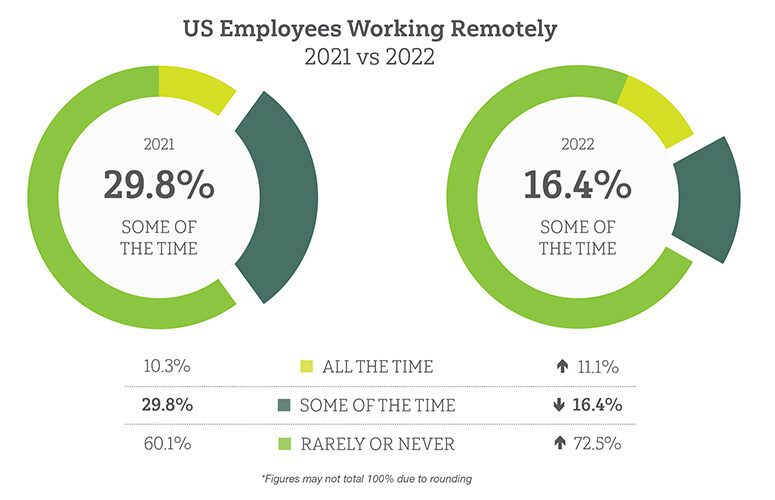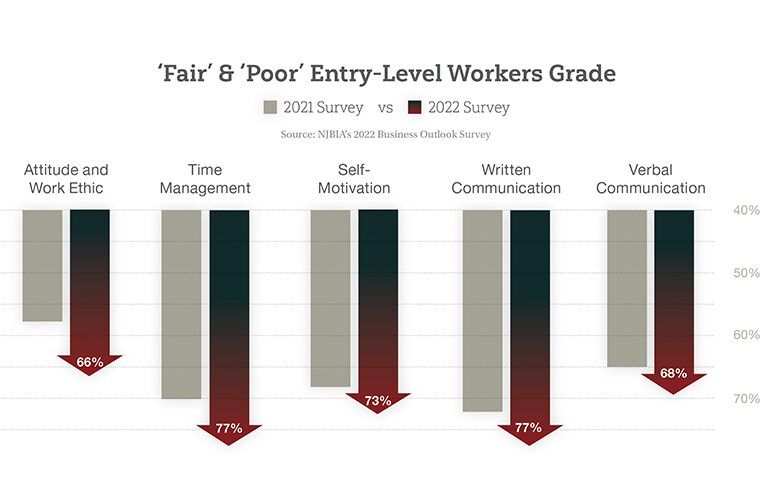
Remote Work Declined in 2022
By Kyle Sullender, Executive Director, Focus NJ On May 2, 2023For many American workers, remote work was born out of necessity during the COVID-19 pandemic. Three years later, remote work remains a fixture for some, but the landscape has shifted in important ways.
According to the most recent estimates from the Bureau of Labor Statistics collected during summer 2022, remote work decreased from the year prior. The share of establishments with employees working remotely “all or some” of the time fell from 40.1% to 27.5%, meanwhile, the share of establishments with employees working remotely “rarely or never” increased from 60.1% to 72.5%.
In New Jersey, the percentage of establishments with employees working remotely at least some of the time fell as well, declining from 39.5% in 2021 to 27% in 2022. The share of establishments with employees working remotely rarely or never increased from 60.6% to 73%.
Don’t mistake this trend as the end of work from home arrangements, however. The same 2022 BLS findings indicated that 95.1% of establishments expect the amount of time their employees are permitted to work remotely would stay the same in the next six months.
These changes make sense in light of why many workers had started working remotely in the first place: the pandemic. By the conclusion of 2020, 64% of those working from home said they were doing so because their office was closed or unavailable, according to a study conducted by the Pew Research Center. Just 36% said they worked from home by choice.
By the start of 2022, those figures had flipped. More than 6 in 10 of those working from home said they did so by choice, while just 38% said they were working remotely because they were unable to go into their place of work.
While remote work has considerable implications for individuals, such as reduced commuting times, increased flexibility, and a host of other marginal benefits, remote work has significant effects on state economics as well. Where workers live and work affects the payment of income taxes, real estate markets, as well as how and where consumers spend their money.
Determining the economic and fiscal impacts of remote work will be important as New Jersey seeks to better understand how these changes affect its economy.
To access more business news, visit NJB News Now.
Related Articles:





